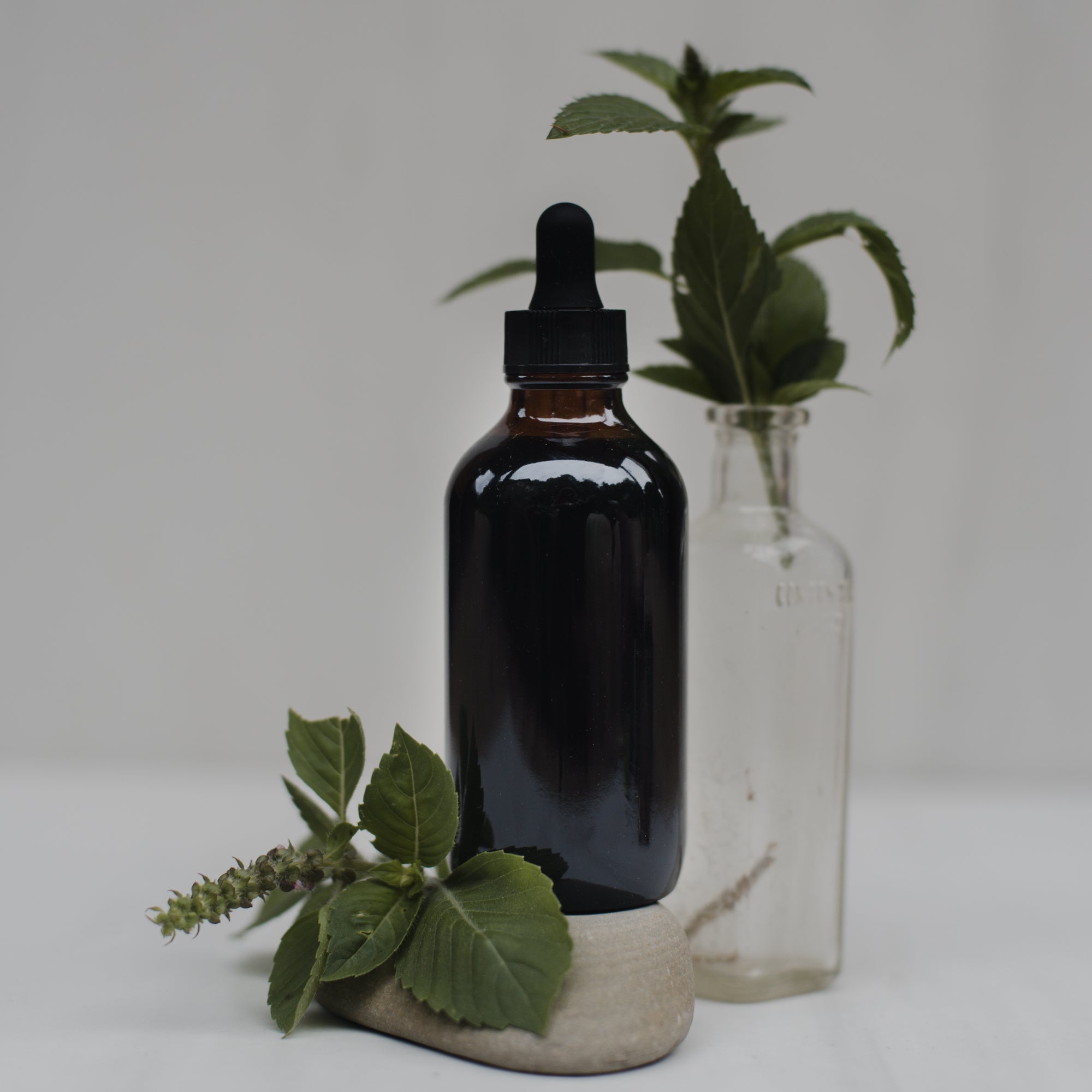Yes, I have ashwaganda in my cupboard, I won't lie. In my garden though, I'm slowly growing Rhodiola Rosea, an adaptogen native to colder climates. There are powerful herbs growing all over the world, in every climate and across every season. Every place has it's own medicine, suited to the needs of the people who foster that land. Why do I need to order in a plant from the southern states or even Asia when I can walk out my door and find a plant with similar actions growing at my feet?
One can learn about the power of plants for a lifetime and still fee like a novice, even when studying only the plants in one's backyard. I'm lucky to have learned from many teachers over the years via courses, books, herb walks and discussions over tea, and so many of them stress this one point; that all we need to do is learn a handful of plants. That's it. There's no need to learn about hundreds. Many herbalists and traditional healers knew 20-40 plants deeply, studying their effects throughout the season, getting to know how they change and when each part is best harvested for each ailment. Some medicines are best gathered at their most potent, others after their strength has lessened. Some plants harvested in the spring offer gentler medicines than in the fall. Some plants need to be harvested in only their first year, and some only in their second. Burdock has components that fit into both of those categories! Some need to grow for 5 or more years before their roots are potent.
The plants I use are those that you most likely already know, maybe from childhood or from your own garden. Yarrow, plantain, lemon balm, valerian, burdock, dandelion, mugwort, lavender, willow, violet... the list goes on, but not very far. If you follow these plants through the seasons, you'll also find that there's something available throughout the year for just about everything.
This brings up the idea of time. If I made medicines from dried plants and didn't pay attention the colour, the smell, the vibrancy of those plants, the medicine may very well be lacking. Think of your spices, when you open that jar of rosemary, does it smell strong? Is it still green? Does it hold it's flavour? If not, I'd suggest feeding it to the compost and buying some new, and I definitely wouldn't make medicine from it. Same goes for your herbal teas; if it's powdery and lacking fragrance, it's medicinal benefits will be few.
Making herbal products from primarily local, seasonal, fresh plants is limiting for sure. This means that if I can only gather enough violet for 20 bottles of elixir, then that's all I'll have until the following spring. But if you want more violet for her ability to push mucus from the lungs and soothe a sore throat, mullein will be coming up right after violet as well as spruce and fir tips. If you want violet for her ability to soothe the grief stricken heart, rose will be emerging from her thorny slumber to hold you in deep embrace. There is always something. Worry not, nature has us covered.


